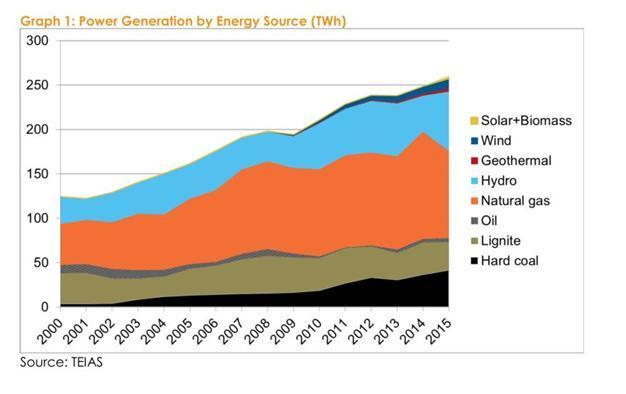Turkey risks economy with lignite-fired plant investments: Report
Öykü Altuntaş / ISTANBUL - Doğan News Agency

Turkey is at risk of making a “historic error” in its energy policy that would put its economy at risk by investing heavily in a new fleet of lignite-fired power plants, the Institute for Energy Economics and Financial Analysis (IEEFA) has said in a report.
A lignite-fueled build-out being pursued by the Turkish government would cost at least $1.1 billion, and around $2 billion in annual public subsidies, which would lead to an increase in electricity prices from 19 percent to 29 percent, according to the report titled “Turkey at a Crossroads: Invest in the Old Energy Economy or the New?”
The strategy would undercut recent progress in opening Turkish energy markets to competition, the report urged.
“The rapid addition of new lignite-fired power plants would lock in plant costs at a time of slow or declining growth in the demand for power… and would create excess generating capacity that would have to be paid for by consumers and businesses whether or not that capacity is needed,” it added.
Turkey would be fighting a losing battle by trying to improve its energy security by increasing its dependence on coal, the IEEFA urged in the report.
This way, the potential for defaults and stranded assets associated with the build-out would undermine the Turkish banking sector, it added.
“Turkey is at a crossroads, deciding whether to invest in the old energy economy or the new,” wrote the report’s authors, Pelin Yenigün Dilek, an Istanbul-based IEEFA consultant, and IEEFA Director of Resource Planning Analysis David Schlissel.
“The choice is stark: One path leads to a coal-fired past while the other points toward a brighter future rooted in renewables,” they said.
“How Turkey will achieve these goals is uncertain, however, as policymakers weigh whether to push the country toward [the] construction of a new lignite-fired fleet of generators or to take part in a global energy sector transformation fueled by renewables,” stated Dilek and Schlissel.
The report concluded that solar and wind-powered resources combined with gains in energy efficiency continue to establish viable - “indeed superior” - alternatives to coal-powered electricity generation.
 Turkey is at risk of making a “historic error” in its energy policy that would put its economy at risk by investing heavily in a new fleet of lignite-fired power plants, the Institute for Energy Economics and Financial Analysis (IEEFA) has said in a report.
Turkey is at risk of making a “historic error” in its energy policy that would put its economy at risk by investing heavily in a new fleet of lignite-fired power plants, the Institute for Energy Economics and Financial Analysis (IEEFA) has said in a report.